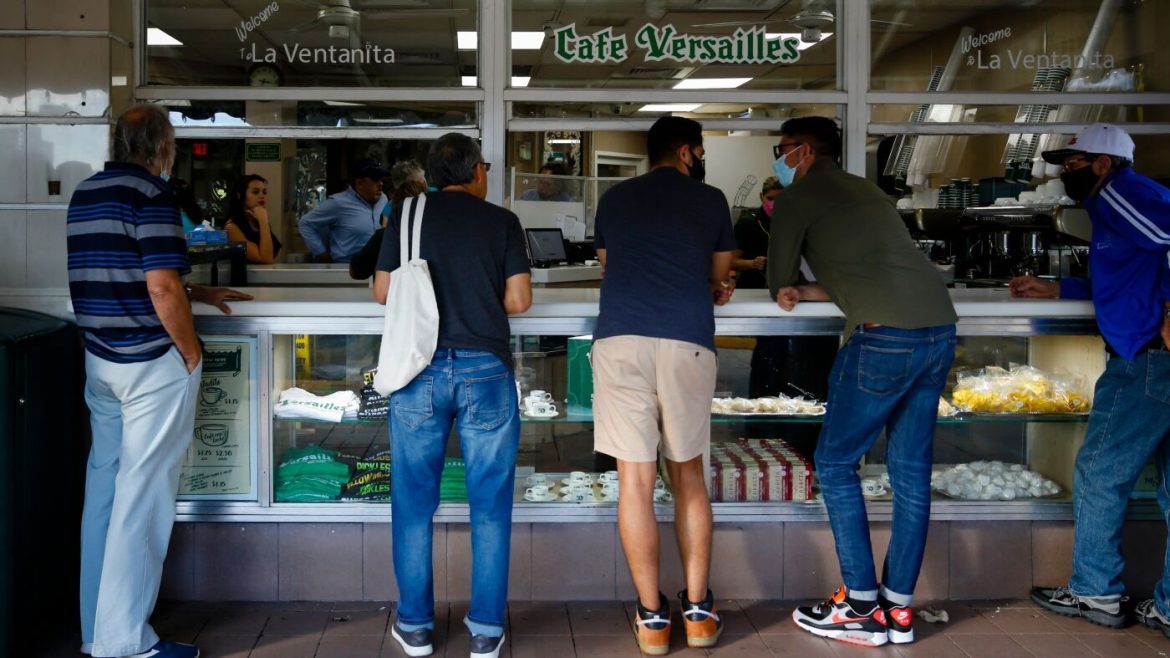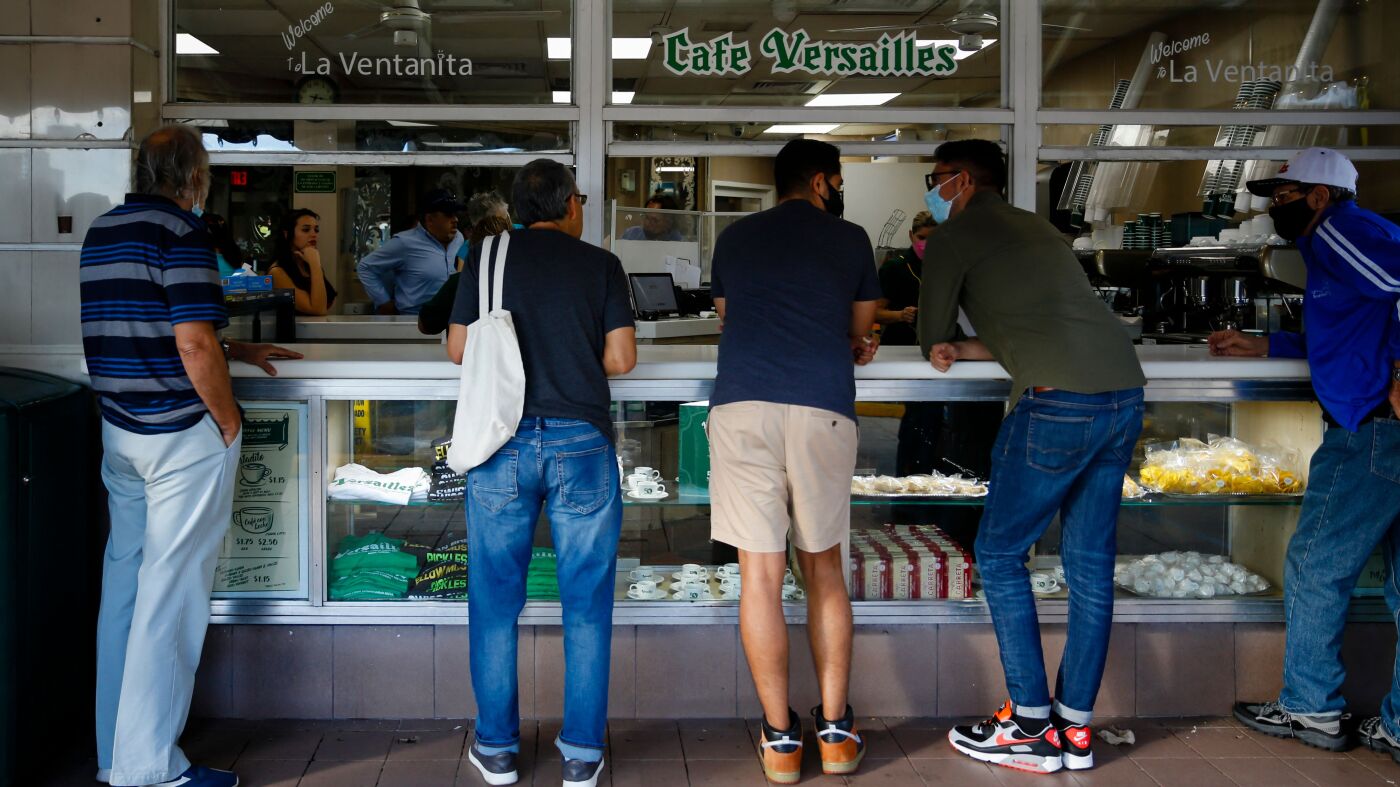Rising Deportations Stir Anxiety in Miami’s Cuban-American Community
Miami’s Cuban-American community, long known for its fervent support of President Trump, is now grappling with growing unease amid a surge in deportations. Once sheltered by unique immigration policies that made Cubans a “protected” group, recent shifts driven largely by Trump-era enforcement have sparked fear, protests, and intensifying debates over the community’s future in the United States.
—
Historical Context: The Cuban Exception and Its Erosion
Historically, Cuban immigrants have benefited from special immigration privileges rooted in Cold War policies, such as the “wet foot, dry foot” policy and humanitarian parole, which made it easier for them to seek refuge and avoid deportation. This privileged status fostered a robust Cuban exile community in South Florida. However, in the years following President Trump’s intensified crackdowns, many of these protections have eroded.
Policies such as the termination of humanitarian parole for Cubans in early 2025 and the ending of the “wet foot, dry foot” policy have effectively removed long-standing safety nets. These changes mean that thousands of Cubans who once could settle relatively safely in the U.S. are now at heightened risk of deportation. Such policy shifts have significantly complicated the immigration status of many, moving a community historically seen as an exception into the broader and often more perilous landscape faced by immigrants from other countries.
—
Social and Political Dynamics: Cuban-Americans and Trump
Before the 2024 election, polls indicated that approximately 70% of Cuban-Americans in Miami-Dade County supported Trump. Their backing stemmed partially from his firm stance against the Cuban government and a perceived alignment with their anti-communist values. Yet, the administration’s immigration enforcement—especially its rapid escalation of deportations—has sown discord among community members.
The growing alarm comes from individuals who initially voted for Trump but are now fearful of the consequences his policies carry for their families and neighbors. While there remains strong loyalty to Trump’s Cuba-related foreign policy, many Cuban-Americans express discomfort and criticism over domestic immigration practices that threaten to dismantle families and disrupt their social fabric.
This tension encapsulates a broader identity conflict: many Cuban exiles cherish their homeland’s liberty struggles but feel vulnerable as U.S. policies increasingly position them alongside immigrant groups traditionally marginalized or vilified.
—
Human Impact: Detentions, Protests, and Family Separations
The human toll of the deportations is vivid. Detainees at Miami’s Krome Detention Center have staged protests against overcrowded conditions, poor treatment, and the relentless pace of deportations following policy changes in 2025. With detention facilities overwhelmed and oversight mechanisms weakened, the physical and psychological stress on detainees—many of them Cuban—is palpable.
Cases abound of families thrown into chaos; for instance, a Cuban mother deported while separated from her young child has galvanized community concern. Such stories underscore the urgency and complexity of immigration enforcement’s human repercussions, particularly in Miami’s tight-knit Cuban-American enclaves.
Self-deportation has emerged as a heartbreaking choice for individuals holding I-220A forms—legal papers that alert them of imminent deportation and potential detention at Guantánamo Bay. Driven by fear, many prefer to leave voluntarily to escape harsh detention conditions and prolonged legal uncertainty.
—
Legal and Bureaucratic Challenges: The Court Backlog and Uncertainty
The immigration courts in Miami face significant backlogs, further exacerbating migrants’ precarity. Many Cuban immigrants remain stuck in prolonged legal limbo, as slow case processing compounds anxiety and risks of deportation. For researchers, families, and others who fled Cuba seeking safety and stability, these delays inflict a potentially devastating strain on their life plans.
This backlog also limits the ability of legal advocates and families to mount effective defenses, resulting in increased deportations despite community resistance.
—
Political Repercussions and Community Fractures
The deportation surge has fractured what was once a relatively unified Cuban-American outlook on immigration. Some Republican leaders within the community have openly condemned the White House’s aggressive immigration sweeps, even as others maintain robust support for Trump’s broader political agenda.
Moreover, these shifts challenge the image of Cuban-Americans as a monolithic political bloc, showcasing more nuanced perspectives shaped by lived realities rather than purely ideological commitments.
—
The Broader Latino Context: Comparative Views and Political Shifts
While Cuban-American voters have historically leaned Republican—owing to their history and geopolitics—other Latino groups in South Florida have displayed different reactions. Some Latino communities have responded to stricter immigration policies with protests and vocal opposition.
The Miami context reveals a dynamic political environment where immigration enforcement policies can both solidify and strain political loyalties, highlighting the complexity within diverse Hispanic populations.
—
Conclusion: Navigating a Fraught Present and Uncertain Future
Miami’s Cuban-American community stands at a crossroads. Once doubly assured by their special status and political alignment, they now confront a wave of deportations and policy crackdowns challenging their sense of security and belonging. The contradictions of supporting a political figure whose immigration enforcement policies imperil their community present a profound dilemma.
Beyond numbers and policy debates, the unfolding reality involves families torn apart, the jailing of neighbors and friends, and the erosion of a decades-long protection that distinguished Cuban immigrants from many others. As Miami’s Cuban-Americans wrestle with these changes, their experiences are emblematic of broader questions about immigration, identity, and the limits of political allegiance in a rapidly shifting American landscape.


